Two key moments shaped Kalino Vikato Kinimi’s journey into music. The first was during her 11th grade at Pine Mount School, Shillong.
Published on Sep 2, 2025
Share
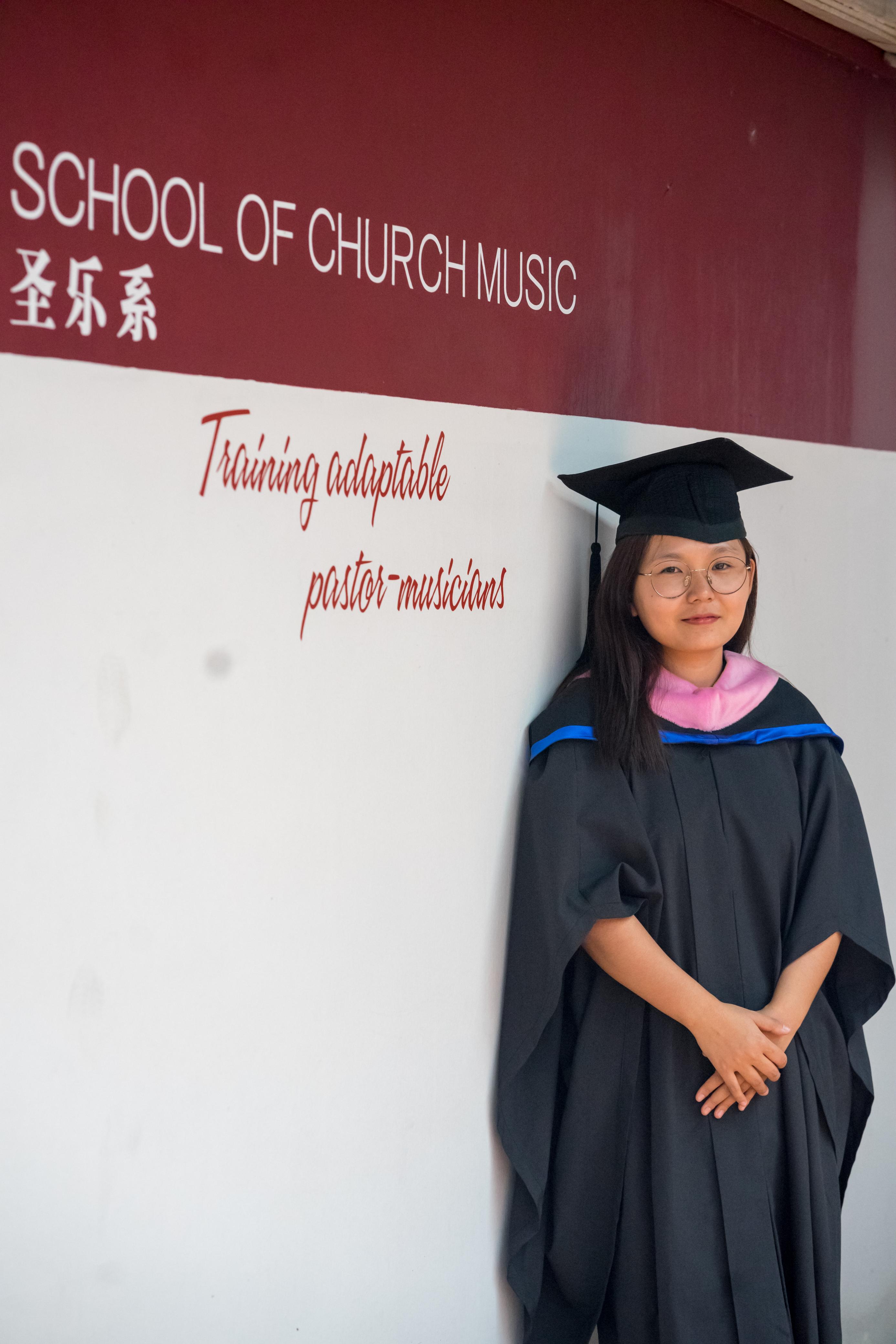
DIMAPUR — Two key moments shaped Kalino Vikato Kinimi’s journey into music. The first was during her 11th grade at Pine Mount School, Shillong. Every morning, students would line up according to their classes, and once everyone was in place, a student pianist—assigned on rotation—would begin to play. As soon as the music filled the air, they would walk in line to the assembly hall. She was always mesmerised by the way they played so beautifully, and in those moments she realised how deeply music could touch hearts, often without words.
The second was in her church, which at the time had very little exposure to western classical music or choral works. She felt an urgent need to study music seriously so that she could share and nurture this gift within her community. From the beginning, her motivation has been rooted in humanitarian grounds and the belief in music’s power to heal emotionally and spiritually.
Also read: The Rise and Rise of the Creator Economy
She excelled academically and initially planned to pursue law. In 2009, she even secured admission at Mount Carmel College, Bengaluru, to study Political Science. But everything changed after what she describes as a personal encounter with God in a dream. That moment led her to study theology and music together, completing her ABRSM grades alongside a Bachelor of Theology at Golden Crown Theological College (2009–2012). She went on to pursue a Masters of Divinity at Theological Centre for Asia, Singapore (2013–2015), a Bachelor of Church Music at Singapore Bible College (2015–2019), and a Master of Music at St. Paul University, Manila, Philippines (2023–2025).
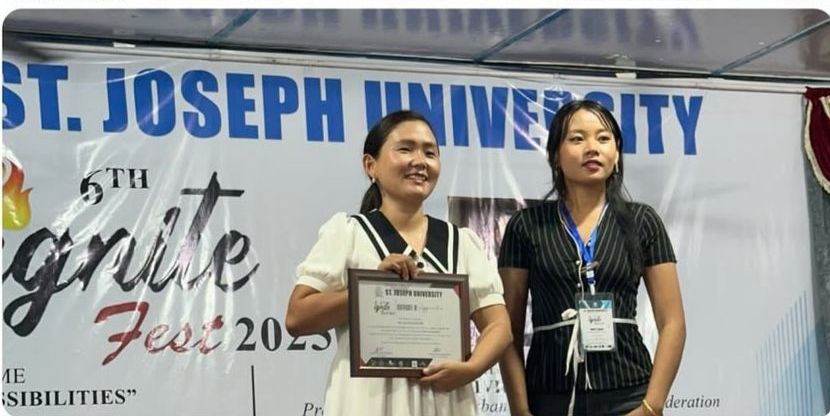
Another key influence was her father. He had a huge passion for music and encouraged them from a very young age. He bought their first drum set when her younger brother was only two years old, and he made sure they always spent their holidays learning music. He encouraged them to play and sing together as a family, and when it came to music, he never said “No”. She said that he was incredibly generous in buying them the latest instruments and equipment, creating a home where music was part of everyday life. Because of his encouragement, all her siblings are musically inclined too, though she is the one who chose to pursue it professionally.
Professionally, Kinimi has served in diverse roles. She was Praise and Worship Leader and Sunday School Teacher at Abundant Life Baptist Church, Singapore (2013–2017); Music Director at Ang Mo Kio Methodist Church, Singapore (2018–2019); and Music Director at Kushiabill Sumi Baptist Akukuhou, Dimapur (2019–2023). She has also taught voice, music theory, and piano at Golden Crown Theological College, Margaret Shishak School of Music (MSSM), Shofar Music Academy, and Akuvuto Music Institute (WSBAK) from 2019 to 2025.
In 2022, she founded the Kinimi School of Music in Dimapur, where she continues to train, mentor, and inspire young musicians.
In this interview with Eastern Mirror, Kinimi talks about the place of music as a field of study and career and offers practical advice to students, parents, and aspiring musicians.
How would you introduce music as a field of study and career?
You never really know if music is your calling until you try it. I encourage students to attend authentic music academies early on – in high school or college – to explore whether this is something they'd love to pursue for life. Today, careers aren't limited to doctors, engineers, or civil servants. If you are good at what you do and you love it, you'll always make a living. But remember: music must come from genuine love and passion; otherwise, it becomes a burden.
What inspired you to start Kinimi School of Music?
I love both music education and administration. More importantly, I felt a calling to raise future music directors, educators, worship leaders, and performers who could impact both the church and society. Every child comes from a unique background, and I wanted to create a space where their well-being is valued while they develop musically.
How much practice is realistic for school-going children?
This is always one of the biggest challenges since children already juggle homework, exams, and other activities. At our school, we give every child a practice logbook where they record the time and date of each practice session, signed weekly by their parents. This helps us track progress and also keeps parents involved.
We usually recommend 30 minutes to 1 hour a day. The key is not the length of practice but the quality. If a child wants to go beyond an hour, that's wonderful, but balance is important so that schoolwork and rest are not neglected. With honesty, discipline, and consistency, even short daily sessions can make a big difference.
How can parents encourage progress without adding pressure?
Ideally, parents should know some basics of music to engage meaningfully with their child's progress. But even if that's not possible, showing patience, empathy, prayer, and open communication with tutors goes a long way. Encouragement without comparison is vital.
What are the main learning routes—private lessons, school programmes, graded exams, diplomas, and degrees—and how do they differ?
There isn't a single fixed route in music education—it really depends on a student's goals. From my experience, the best start is private lessons at the earliest age possible, as they provide personalised attention and strong foundations. Alongside this, students can work through graded exams (like Trinity, ABRSM, RSL, or other recognised boards), ideally completing up to Grade 8 with real understanding. From there, students who want to go deeper can pursue formal degrees – a Bachelor's and then a Master's in Music – which provide broader knowledge, professional training, and career pathways.
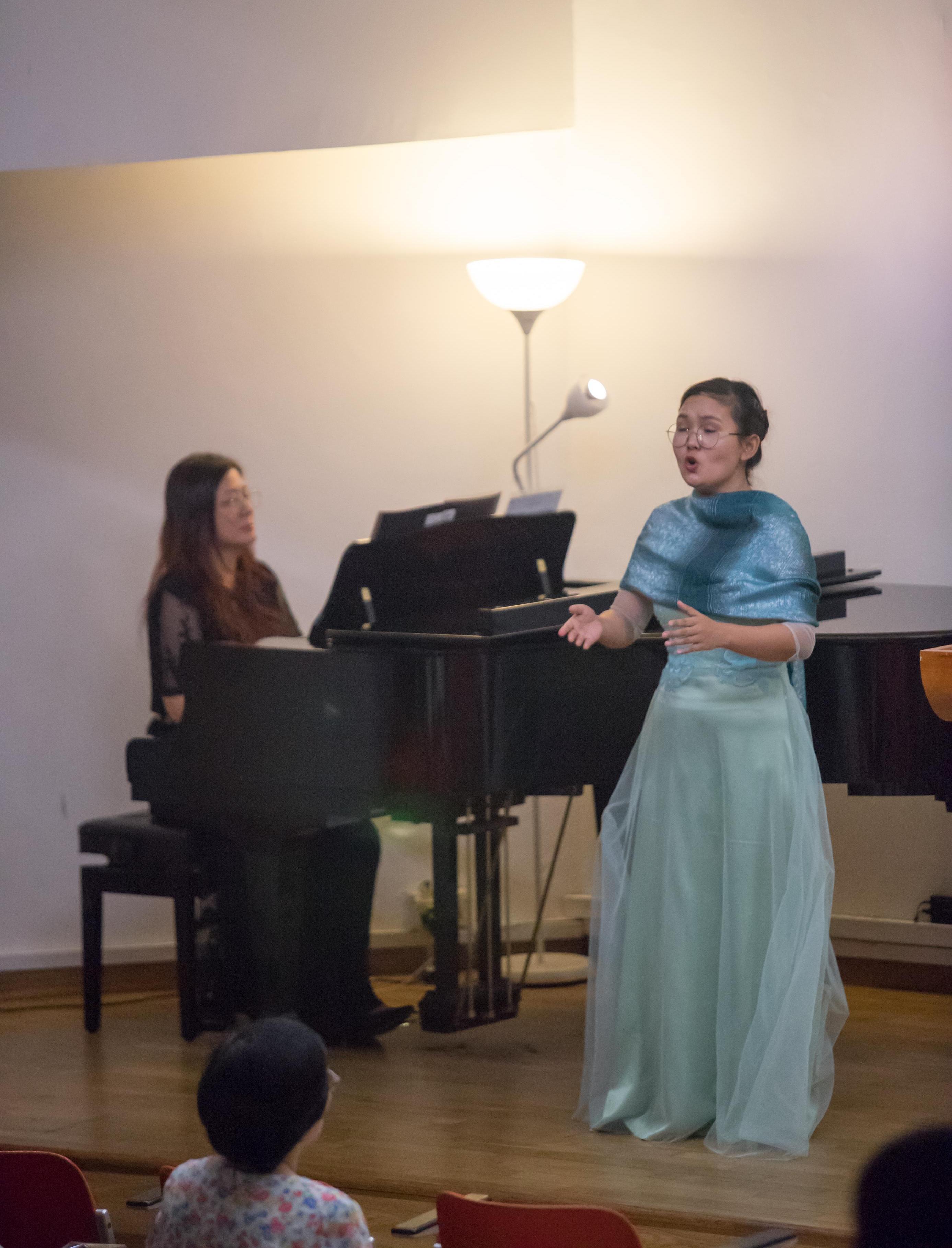
Is there an ideal age to begin formal training? Is it ever “too late”?
There's no such thing as “too late”. Life itself is a learning process. As long as you're healthy, you can always begin and discover something new in music.
Tips for stage fright and performance confidence?
Practice, practice, practice! My professor used to say: learn a piece not just 100% but 200%. That way, even if nerves take away half your confidence, you still have plenty left to perform well.
Beyond performing, what career options can music open up?
Teaching, music therapy, audio production, music management, music journalism, creative arts, music technology, gaming, film scoring, and mental health care—the possibilities are vast.
What might a realistic early-career timeline look like – from student to paid gigs or teaching?
In my experience, there isn't a fixed timeline for a music career because music is such a wide profession. For some, it begins at home – listening, practising with friends, or being mentored by family members. If one chooses to go deeper, there are institutes worldwide offering training in western classical, jazz, pop, hip-hop, electronic, country, blues, and more.
With the right skill set, a student can begin performing gigs almost anytime, even while still studying – that's how buskers start. Similarly, teaching opportunities often open up early; many music schools hire part-time tutors who are still pursuing their Bachelor's or Master's in Music. Of course, higher levels of performance or teaching usually require more training, experience, and graded certifications. But overall, music careers are flexible – you can grow step by step while still studying and building experience.
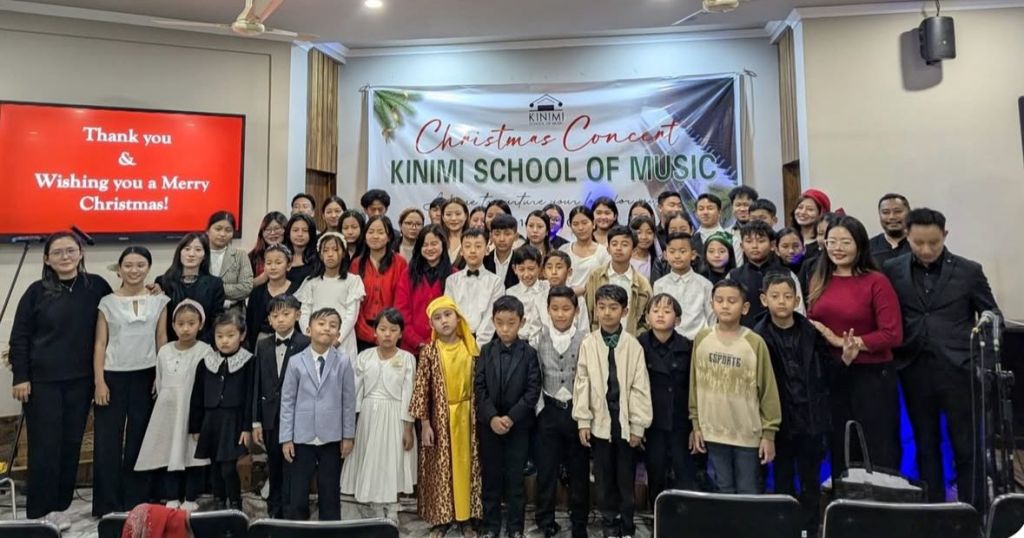
How are technology and AI changing practice, learning, and music careers?
Technology and AI are reshaping how we learn, create, and share music. Today, students can access high-quality tutorials, virtual instruments, theory apps, and AI-powered feedback tools right from their phones or laptops. AI can generate backing tracks, help with composition, and even analyse your singing or playing for accuracy. This makes learning more interactive and personalised.
For careers, technology has opened global opportunities – musicians can now teach online, collaborate remotely or even release their music independently on streaming platforms. AI is also helping with music analysis, transcription, and content creation, which can save time and expand creativity. But it's important to remember: these are just tools. Your emotion, discipline, and creativity still matter most.
For families on a budget, what are low-cost ways to learn and keep improving?
Start with free resources – YouTube, Google, and other online tutorials can be incredibly helpful for beginners. Many apps also offer free lessons in music theory, ear training, or instrument basics. Another great way is to connect with friends or local musicians who can guide or mentor you at no cost. Most importantly, consistent practice, listening widely to different genres, and playing with others are all free and powerful ways to grow as a musician.
Advice to aspiring musicians?
Don't just dream – "Act". Start with consistent practice, listen widely, enrol yourselves in the nearest music school or academies and get the right mentors. Music is a lifelong journey; discipline, hard work, and passion will sustain you.
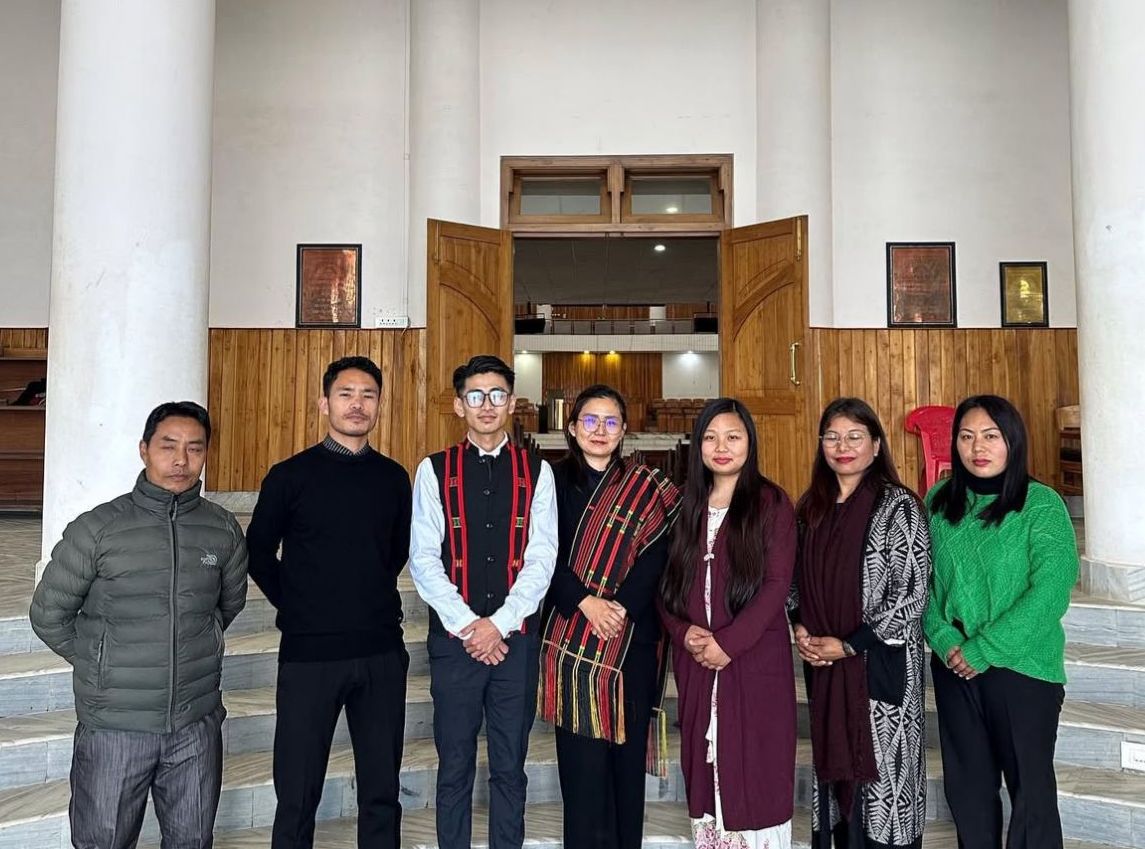
RAPID INSIGHTS
First full song learned?
The Climb by Miley Cyrus (recorded from a cassette, writing down lyrics by pausing and rewinding!)
Go-to feel-better track?
“Icarus” by Tony Ann and “O” by Coldplay.
Quote you share with students often.
Work hard, be disciplined, be committed, keep an end goal in mind, and enjoy the process.